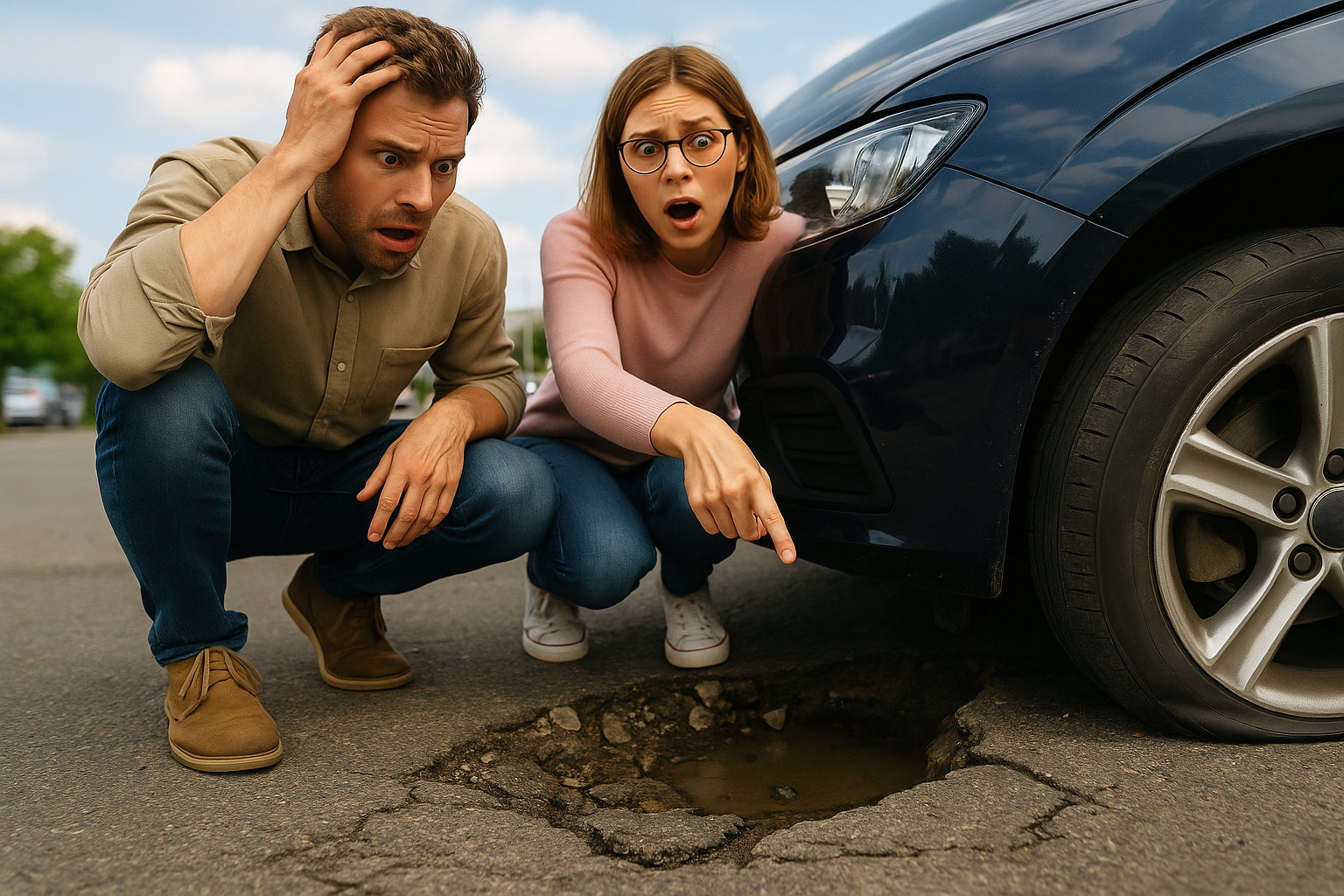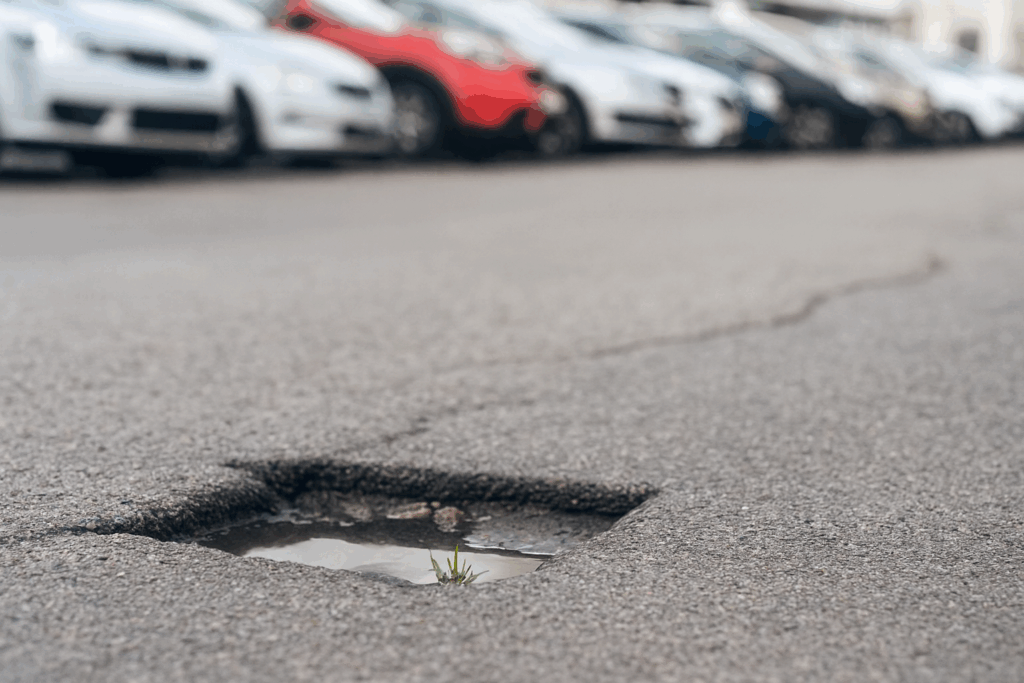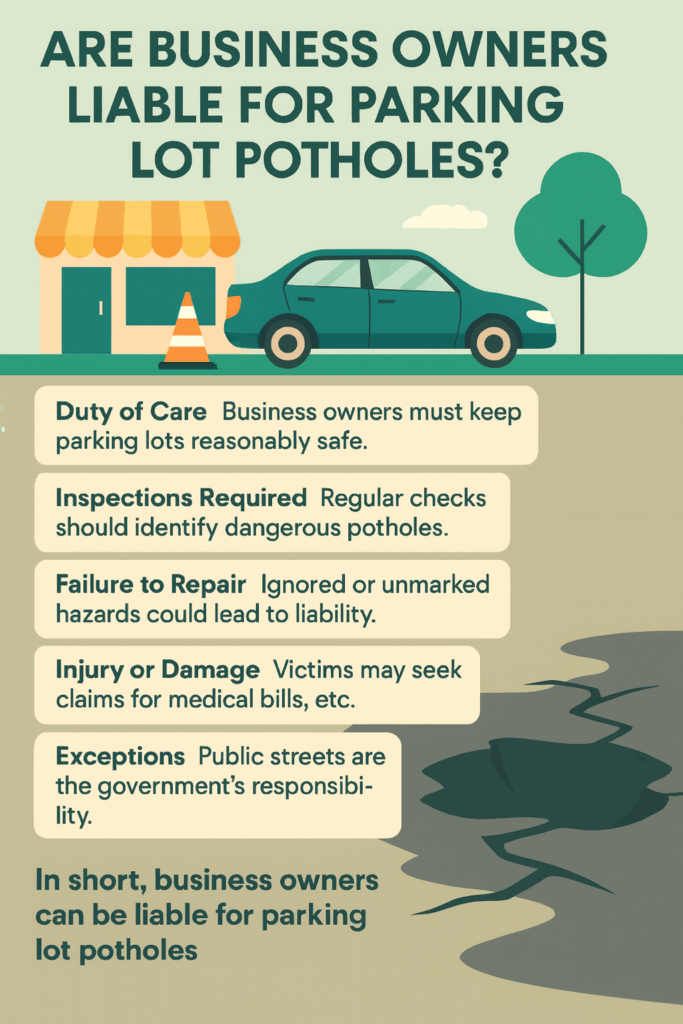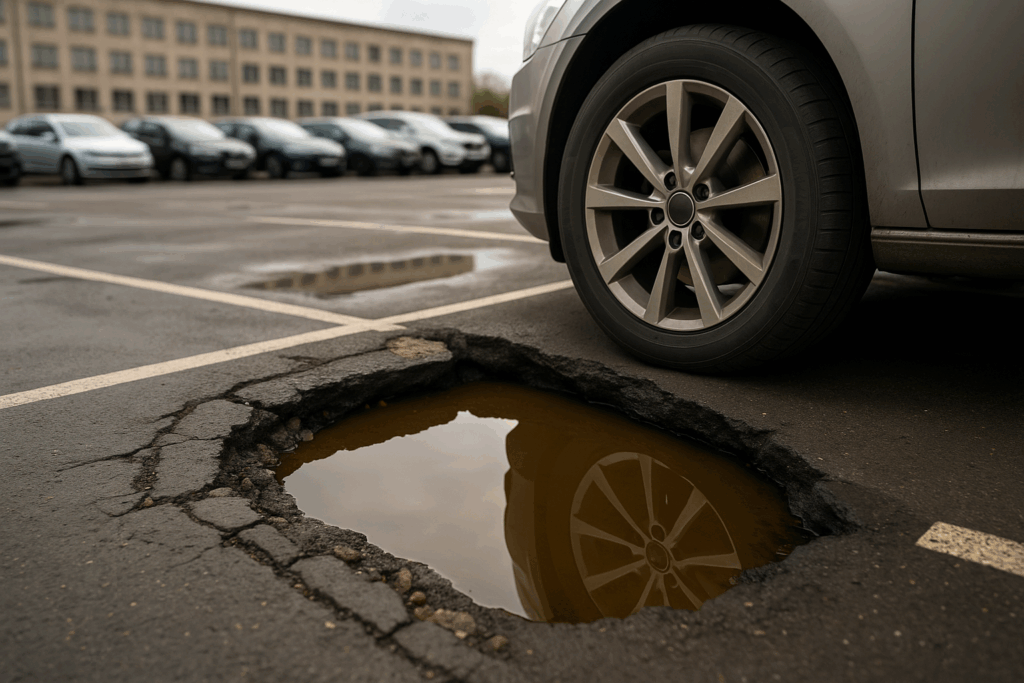
If you’re wondering, are business owners liable for parking lot potholes when accidents happen, the answer depends on whether the owner or manager failed to maintain the property safely. Here are the key points:
In short, business owners can be liable for parking lot potholes if they fail to inspect, repair, or warn about dangerous conditions that cause injury or damage.
Potholes are a universal nuisance, especially for drivers. Across the U.S., some cities even mark an unofficial National Pothole Day each January and launch repair campaigns like Potholepalooza to fill as many holes as possible.
Despite these efforts, the American Automobile Association (AAA) estimates pothole damage costs U.S. drivers $3 billion annually in blown tires, bent rims, and suspension repairs. Crashes and fatalities have also been linked to drivers swerving or braking to avoid holes. For more on preventing roadway hazards, see the National Highway Traffic Safety Administration’s Road Safety resources.
Potholes don’t just threaten public roads. Parking lots owned by private businesses develop the same cracks and voids, creating risks for cars, pedestrians, cyclists, and motorcyclists. That’s why the question “are business owners liable for parking lot potholes?” matters to anyone visiting a store, office, or shopping center.
In this article, we’ll explore a key question: Are business owners liable for parking lot potholes when injuries or damages occur? We’ll cover who pays for repairs, when you can file a claim for car damage or a fall, what evidence helps, and how compensation is determined.

Courts don’t expect flawless pavement, but they do expect owners to manage foreseeable risks. That begins with the duty of care businesses owe to customers and visitors. In many cases, business owners are liable for parking lot potholes if they knew about a hazard but failed to repair it or provide a warning.
When these factors exist, a pothole crosses from ordinary wear into a legally actionable hazard—reinforcing why are business owners liable for parking lot potholes is such a common legal question.
Repairs are usually the responsibility of the party with control over the property—whether the landlord, tenant (per lease terms), or property manager. Maintenance contracts often assign inspection and repair duties.
Shopping centers and office complexes often split repair costs through common area maintenance (CAM) agreements, with a property manager overseeing work.
If the defect lies in a roadway that appears part of the lot but belongs to the city, repairs fall to the municipality. Businesses, however, may still need to report hazards.
Businesses may rely on commercial property insurance or general liability coverage. Vehicle damage may first go through your auto insurer, which could then seek reimbursement if the lot owner’s negligence is proven.

Vehicle repair claims are often handled through your auto insurer first, while injury claims typically fall under premises liability law. In either case, thorough evidence strengthens your claim.
A pothole in a business lot can leave you with medical bills, repair costs, and lost income. These cases hinge on proving the property owner failed to take reasonable safety steps. An experienced attorney can investigate, gather evidence, and fight for the compensation you deserve.
If you’ve been hurt or your vehicle was damaged, don’t wait to ask: Are business owners liable for parking lot potholes in your case? Contact the parking lot injury lawyers at Thompson Law today for a FREE CONSULTATION and learn about your legal options.

Serving clients in:
Yes. Business owners and property managers are often liable for parking lot potholes if they fail to maintain safe conditions. Regular inspections and timely repairs are expected under premises liability law.
Take photos of the pothole and the damage, save all receipts for repairs, and report the hazard to the business immediately. You may be able to file a claim with the property owner’s insurance if negligence is proven.
Yes. If a pothole caused you to trip, fall, or otherwise sustain injuries, you may have grounds to sue the business owner for medical bills, lost income, and other damages.
If the pothole is in a public street or curbside lane, claims are usually directed against the city or county. These cases involve strict deadlines, often requiring notice within six months.
Evidence is crucial. Photos of the pothole, maintenance logs, witness statements, and medical or repair records can all help establish negligence and support your claim.
No. Courts don’t expect surfaces to be flawless. However, businesses are expected to address potholes that are large, hazardous, or in high-traffic areas where harm is foreseeable.
Sí. Hablamos español. We provide bilingual support so Spanish-speaking clients have full access to our attorneys.
Contact Thompson Law today for a FREE CONSULTATION!






Thompson Law charges NO FEE unless we obtain a settlement for your case. We’ve put over $1.9 billion in cash settlements in our clients’ pockets. Contact us today for a free, no-obligation consultation to discuss your accident, get your questions answered, and understand your legal options.
State law limits the time you have to file a claim after an injury accident, so call today.